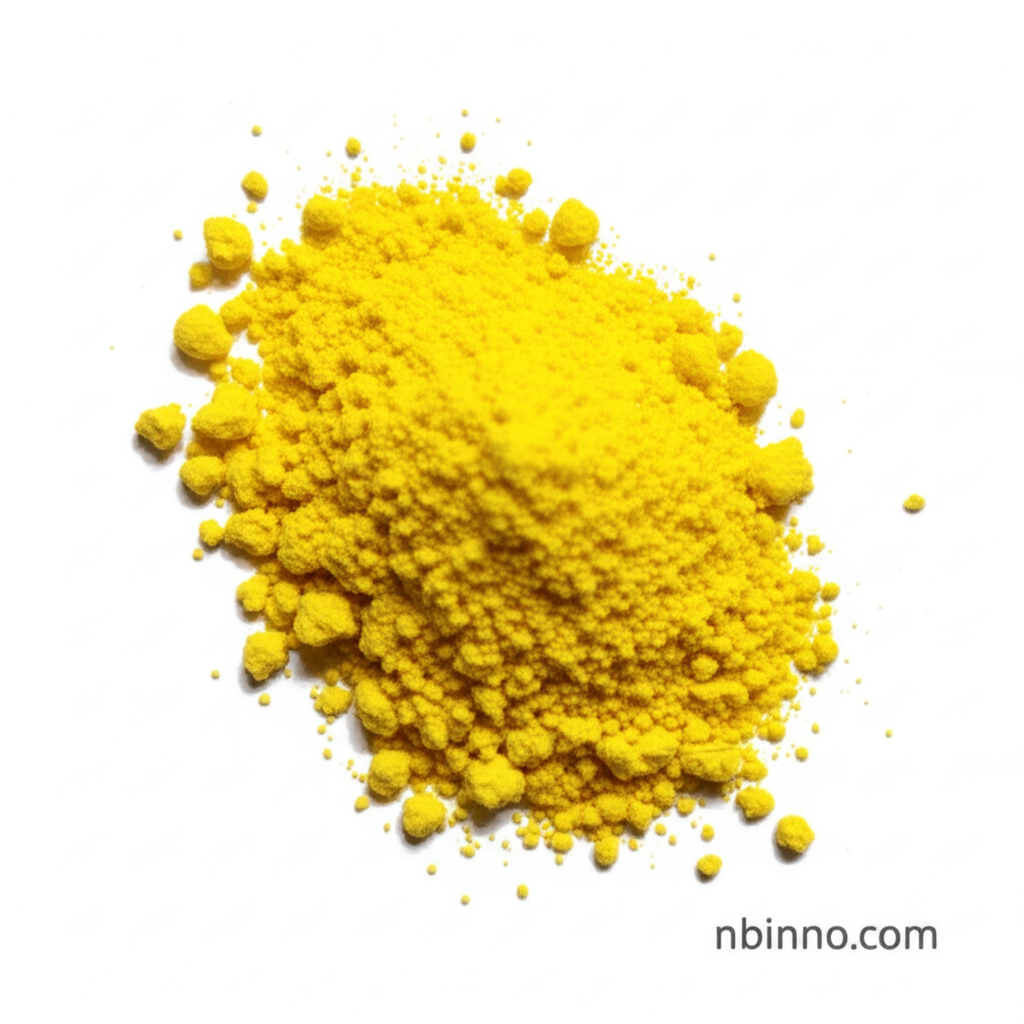High-Purity 2,6-Dihydroxynaphthalene-1,5-dicarbaldehyde: A Key Monomer for Advanced COF Synthesis
Discover the critical role of 2,6-Dihydroxynaphthalene-1,5-dicarbaldehyde (CAS: 7235-47-4) in the synthesis of cutting-edge Covalent Organic Frameworks (COFs). We are a leading manufacturer and supplier in China, providing high-purity organic building blocks for your advanced materials needs. Explore its applications and secure a competitive price.
Get a Quote & SampleYour Trusted Supplier for High-Quality COF Linkers

2,6-Dihydroxynaphthalene-1,5-dicarbaldehyde
As a dedicated manufacturer and supplier, NINGBO INNO PHARMCHEM CO.,LTD. offers 2,6-Dihydroxynaphthalene-1,5-dicarbaldehyde (CAS 7235-47-4) with superior quality and competitive pricing. This essential organic building block is vital for the precise synthesis of Covalent Organic Frameworks (COFs), enabling advancements in various scientific fields. We ensure reliable supply and product integrity from China.
- Key Monomer for COF Synthesis: Essential for creating advanced porous materials.
- High Purity (>97%): Ensuring reliable and consistent results in your chemical synthesis.
- Versatile Applications: Ideal for gas storage, catalysis, and sensing technologies.
- Reliable Manufacturer: Purchase with confidence from a trusted Chinese supplier.
Advantages of Sourcing from Us
Exceptional Purity and Quality Assurance
Our 2,6-Dihydroxynaphthalene-1,5-dicarbaldehyde consistently meets high purity standards, guaranteeing performance in demanding COF synthesis projects. We offer comprehensive quality documentation for every batch.
Direct Manufacturer Pricing and Stable Supply
Benefit from competitive prices by buying directly from the manufacturer. We ensure a stable supply chain for this critical COF linker, supporting your ongoing research and production needs.
Expertise in Advanced Organic Building Blocks
Leverage our expertise in specialty chemicals. We are committed to providing top-tier organic building blocks like 2,6-Dihydroxynaphthalene-1,5-dicarbaldehyde to drive innovation in materials science.
Key Applications
COF Synthesis
This dicarbaldehyde is a fundamental monomer for constructing porous Covalent Organic Frameworks (COFs), enabling precise control over pore size and functionality. Buy this essential COF linker for your advanced material development.
Gas Storage and Separation
COFs derived from 2,6-Dihydroxynaphthalene-1,5-dicarbaldehyde exhibit excellent properties for storing and separating various gases, making them valuable in environmental and energy applications.
Catalysis
The unique structure of COFs synthesized using this monomer can serve as efficient heterogeneous catalysts for a range of chemical reactions, offering high surface area and catalytic activity.
Sensing Technologies
These advanced materials are also employed in sensing applications due to their selective adsorption capabilities, allowing for the detection of specific molecules or ions.
